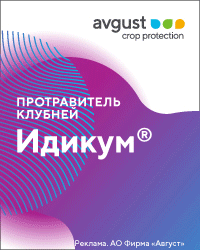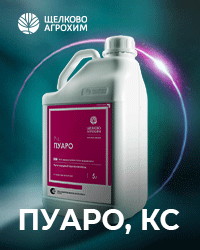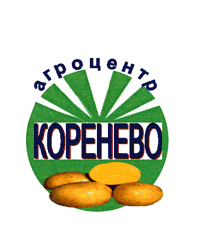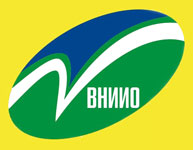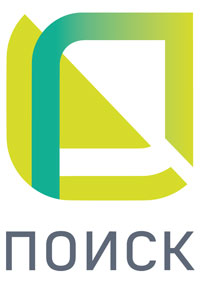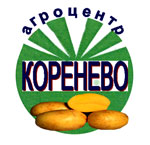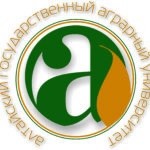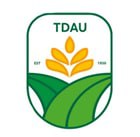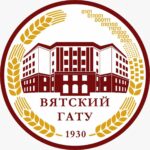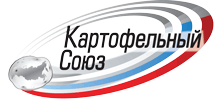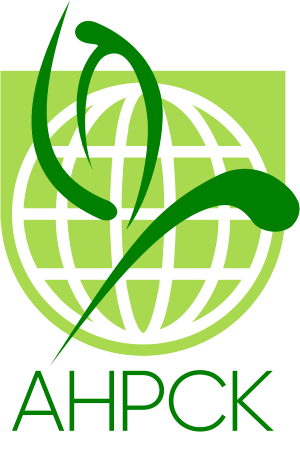UDC 635.64:635–152
https://doi.org/10.25630/PAV.2022.90.28.007
Tereshonkova T.A., Tenkova N.F., Egorova A.A, Eroshevskaya A.S., Titova E.V., Rufina I.V., Bagrov R.A., Khovrin A.N.
Tomato is a very popular vegetable culture in Russia. This is the second crop after cucumber in terms of gross harvest greenhouses. Recently, tomato breeding faces many problems. These include the shortage of personnel for breeders, difficulties with the promotion of domestic hybrids in industrial greenhouses, problems with hybrid seed production in Russia. Nevertheless, breeding work continues in various directions, both for amateur cultivation and for professional producers, which include mainly farms. We created a row of determinate early-ripening, high-yielding hybrids with good fruit quality (F1 Persianovsky, F1 Donskoy, F1 Captain, F1 Plamenny) for the market of professional seeds. The indeterminate hybrids F1 Armada, F1 Rumyanyy shar, F1 Alaya karavella, F1 Alyy fregat, F1 Korund, cherry F1 Volshebnaya arfa, F1 Elʹf, F1 Krasnyy lukum are in steady demand. The result of the work on the evaluation by PCR analysis of breeding material was a comprehensive assessment of linear and hybrid material for the presence of genes I1, I2, Tm2-2, Mi, Cf9, Cf4, CF19 , Ty2, Ty3, Ve 1, Ve 2, Sw5b. Currently, work is underway on the pyramiding of resistance genes. The results of tomato breeding for the conditions of modern air-water technology using multi-tiered vegetative pipe installations «Phytopyramida» was the creation of initial breeding material and promising hybrids of indeterminate type with a large fruit and cherry-type fruit. A series of hybrids with high palatability has been created for the hobby market, incl. F1 Krashenka cocktail type of orange color, cherry hybrid F1 Golden beads. An assessment of the determinant type assortment of the Federal Scientific Center of Vegetables and Poisk company had made in open ground (Kirov). The hybrid F1 Captain and the varieties Ogni Moskvy, Angelochek, etc. were recommended for the conditions of the northern vegetable growing .We plan to register an indeterminate hybrid for soil polycarbonate greenhouses for conditions II light zone.
Key words: tomato, breeding, hybrids, marker-assisted selection.
Tereshonkova T.A. (author for correspondence), Cand. Sci. (Agr.), head of laboratory of immunity and breeding of Solanaceae, ARRIVG-branch of FSBSI FSVC, tomato breeder of Poisk Company. E-mail: tata7707@bk.ru
Tenkova N.F., research fellow, laboratory of immunity and breeding of Solanaceae, ARRIVG-branch of FSBSI FSVC. E-mail: nailya_tenkova@mail.ru
Eroshevskaya A.S., research fellow of laboratory of immunity and breeding of Solanaceae, ARRIVG-branch of FCVG, tomato breeder of Poisk Company. E-mail: eroshnast@yandex.ru
Titova E.V., research fellow, laboratory of immunity and breeding of Solanaceae, ARRIVG-branch of FSBSI FSVC. E-mail: titotito2011@mail.ru
Egorova A.A., Cand. Sci. (Agr.), senior research fellow, laboratory of immunity and breeding of Solanaceae, ARRIVG-branch of FSBSI FSVC. E-mail: edvaaed@rambler.ru
Rufina I.V., senior research fellow, laboratory of immunity and breeding of Solanaceae, ARRIVG-branch of FSBSI FSVC.
Bagrov R.A., Cand. Sci. (Agr.), senior research fellow, laboratory of immunity and breeding of Solanaceae, ARRIVG-branch of FSBSI FSVC. E-mail: romanus81@mail.ru
Khovrin A.N., Cand. Sci. (Agr.), associate professor, leading research fellow, head of Deparment of breeding and seed growing, ARRIVG-branch of FCVC , head of Department of breeding and primary seed production of Poisk Company. E-mail: hovrin@poskseeds.ru. E-mail: hovrin@poskseeds.ru
- Plant characteristics developed by breeding of hybrids F1 «beef» type tomato. N.F. Tenkova, A.E. Eroshevskaya, A.A. Egorova, E.V. Titova, T.A.Tereshonkova. 2020. No4. Pp. 55–59 (In Russ.).
- Ognev V.V. , Tereshonkova T.A., Khovrin A.N. Tomatoes for the south of Russia. Market needs and answers of domestic breeding. Potatoe and vegetables. 2017. No.11. Pp. 34–36 (In Russ.).
- Tomato hybrids with complex resistance for ground greenhouses. T.A. Tereshonkova, R.A. Bagrov, M.G. Fomicheva, N.F. Tenkova, E.V. Titova, A.A. Egorova. Potato and vegetables. 2021. No11. Pp. 34–37. https://doi.org/10.25630/PAV.2021.34.51.006 (In Russ.).
- Study of a collection of tomato hybrids with genetic resistance to the yellow leaf curl virus in Southern Russia. S.F. Gavrish, T.A. Redichkina, A.V. Buts, G.M. Artemyeva. Potato and vegetables. 2020. No12. Pp. 30–34. https://doi.org/10.25630/PAV.2020.32.41.007 (In Russ.).
- Conditions of low-volume technology of Fitopyramida type and the potential of tomato hybrids of various commodity groups. M.N.M. Al’-Rukabi, V.I. Leunov, T.A. Tereshonkova, A.K. Spasskii. Potato and vegetables. 2021. No12. Pp. 31-34. https://doi.org/10.25630/PAV.2021.33.13.006 (In Russ.).
- Approaches to tomato breeding for different types of small-volume cultivation technology. A.S. Eroshevskaya, T.A. Tereshonkova, Kh. Faravn, V.I. Leunov. Potato and vegetables. 2019. No10. Pp. 26–28. https://doi.org/10.25630/PAV.2019.71.88.005 (In Russ.).
- Preserving the causal agent of powdery mildew in tomato and cucumber in vitro culture. A.A. Egorova, T.A. Tereshonkova, A.N. Khovrin, V.I. Leunov. Potato and vegetables. 2017. No7. Pp. 35–38 (In Russ.).
- The practice of application of the methods of marker analysis in the scheme of the breeding process of creating tomato hybrids with group diseases resistance. T.A. Tereshonkova, A.N. Khovrin, Yu.N. Prikhodko, A.A. Egorova, L.M. Sokolova. Methods and technologies in plant breeding and crop production. Materials of the III international scientific-practical conference. 2017. Pp. 172–175 (In Russ.).
- Identification of alleles of the tm-22 gene for evaluation of the initial material of tomato (Solanum lycopersicum) by resistance to mosaic virus (TOMV). A.S. Eroshevskaya, N.A. Milyukova, A.S. Pyrsikov, E.S. Enzekrey, A.A. Egorova, T.A. Tereshonkova, A.N. Khovrin. In the book: Biotechnology in crop production, animal husbandry and agricultural microbiology. Collection of abstracts of the 20th All-Russian Conference of Young Scientists, dedicated to the memory of Academician of the Russian Academy of Agricultural Sciences G.S. Muromtsev. Moscow, 2020. Pp. 113-114. https://doi.org/10.48397/ARRIAB.2020.20.066 (In Russ.).
- Monakhos G.F., Nguyen T.L., Nguyen M.L. Breeding of tomato (Lycopersicon esculentum) resistant to tomato spotted wilt virus. Vegetable crops of Russia. 2014. No3. Pp. 48–53. https://doi.org/10.18619/2072-9146-2014-3-48-53 11. (In Russ.)
- Cherry tomato hybrids of the Poisk company in farms of the Rostov region. T.A. Tereshonkova, I.V. Barbaritskaya, V.V. Ognev, A.N. Khovrin. Potato and vegetables. 2020. No2. Pp. 34-36. https://doi.org/10.25630/PAV.2021.51.83.007 (In Russ.).
- Hybrids of tomato for growing in a polycarbonate greenhouse a second light zone (Kirov). I.V. Rufina, T.A. Tereshonkova, E.A. Shilyaeva, A.N. Khovrin Potato and vegetables. 2018. No.10. Pp. 25–27. https://doi.org/10.25630/PAV.2018.10.18446 (In Russ.).
For citing: Tomato breeding: problems, directions, results. T.A. Tereshonkova, N.F. Tenkova, A.A. Egorova, A.S. Eroshevskaya, E.V. Titova, I.V. Rufina, R.A. Bagrov, A.N. Khovrin. Potato and vegetables. 2022. No8. Pp. 36–40. https://doi.org/10.25630/PAV.2022.90.28.007 (In Russ.).

